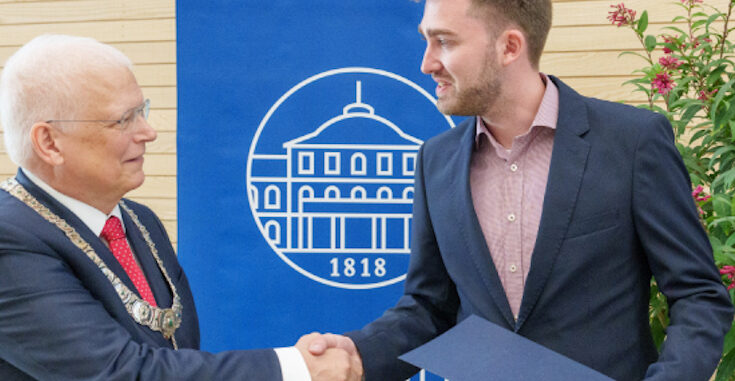In an era where higher education costs continue to rise, scholarships serve as a critical lifeline for students pursuing their academic and professional dreams. For students majoring in STEM (Science, Technology, Engineering, and Mathematics), Arts, and Humanities, specialized scholarships provide tailored financial support, recognizing the unique contributions and challenges of these fields. These awards not only alleviate financial burdens but also foster innovation, creativity, and intellectual growth by empowering students to focus on their studies and career development. This article explores the landscape of scholarships available for STEM, Arts, and Humanities majors, highlighting their significance, types, eligibility criteria, and impact on students and society.
The Importance of Scholarships in Higher Education
The cost of college tuition in the United States has skyrocketed over the past few decades, with the average annual cost at a four-year public institution exceeding $28,000 for in-state students and $45,000 for out-of-state students in 2025. Private institutions often surpass $60,000 annually. For many students, these costs are prohibitive without financial aid. Scholarships, unlike loans, provide funding that does not require repayment, making them an essential tool for accessibility and equity in higher education.
Specialized scholarships target students in specific disciplines, acknowledging the distinct skills and societal value of fields like STEM, Arts, and Humanities. These awards often come from government agencies, private organizations, corporations, and universities aiming to cultivate talent in areas critical to economic growth, cultural enrichment, and intellectual advancement. By supporting students in these fields, scholarships contribute to a diverse and skilled workforce, innovative research, and a vibrant cultural landscape.
Scholarships for STEM Majors
STEM fields are at the forefront of technological and scientific progress, driving advancements in healthcare, artificial intelligence, renewable energy, and more. Recognizing their importance, numerous scholarships are available to STEM majors, encouraging students to pursue careers in these high-demand areas.
Types of STEM Scholarships
- Merit-Based Scholarships: These awards recognize academic excellence and are often offered by universities, professional organizations, and corporations. For example, the National Merit Scholarship Program provides funding to high-achieving students, many of whom pursue STEM degrees.
- Need-Based Scholarships: Organizations like the Horatio Alger Association offer scholarships to STEM students from low-income backgrounds, ensuring financial barriers do not prevent talented individuals from entering these fields.
- Diversity-Focused Scholarships: To address underrepresentation in STEM, scholarships like the Society of Women Engineers (SWE) Scholarships and the National Society of Black Engineers (NSBE) Scholarships support women, minorities, and other underrepresented groups.
- Industry-Specific Scholarships: Companies like Google, Microsoft, and Lockheed Martin fund scholarships for students pursuing degrees in computer science, engineering, and other STEM disciplines, often with opportunities for internships or mentorship.
- Research-Oriented Scholarships: Programs like the Barry Goldwater Scholarship provide funding for undergraduate students conducting research in science, mathematics, and engineering.
Eligibility and Application Process
STEM scholarships typically require strong academic performance, demonstrated interest in the field (e.g., through extracurricular activities, research, or internships), and sometimes a commitment to work in a specific industry or region post-graduation. Applications often include transcripts, letters of recommendation, personal statements, and evidence of leadership or community involvement. For diversity-focused scholarships, applicants may need to demonstrate their background or affiliation with an underrepresented group.
Impact of STEM Scholarships
STEM scholarships have a profound impact on both recipients and society. For students, they reduce financial stress, allowing them to focus on rigorous coursework and research. They also open doors to networking opportunities, internships, and career pathways. On a broader scale, these scholarships cultivate a skilled workforce that drives innovation, addresses global challenges like climate change, and strengthens economic competitiveness. For example, recipients of the Google Computer Science Scholarship often go on to develop cutting-edge technologies, contributing to advancements in artificial intelligence and cybersecurity.
Scholarships for Arts Majors
The Arts—encompassing visual arts, performing arts, music, and design—play a vital role in cultural expression and societal well-being. Scholarships for Arts majors support students whose creative talents enrich communities and challenge perspectives, despite the often high costs of art supplies, studio time, and specialized training.
Types of Arts Scholarships
- Talent-Based Scholarships: Many universities and conservatories offer scholarships based on artistic portfolios or auditions. The Scholastic Art & Writing Awards, for instance, provide funding to high school students excelling in visual or performing arts.
- Discipline-Specific Scholarships: Organizations like the National YoungArts Foundation offer scholarships for students in specific areas, such as dance, theater, or photography.
- Community Engagement Scholarships: Some awards, like those from the Alliance for Young Artists & Writers, recognize students who use their art to address social issues or engage their communities.
- Need-Based Scholarships: Foundations like the Jack Kent Cooke Foundation provide funding to low-income Arts students, ensuring access to education and resources.
- International Scholarships: Programs like the Fulbright Scholarship support Arts students studying or creating abroad, fostering cross-cultural exchange.
Eligibility and Application Process
Arts scholarships often require a portfolio showcasing the student’s work, such as paintings, musical compositions, or performance recordings. Some may also request a statement of artistic purpose, detailing the applicant’s creative vision and goals. Academic performance is considered but is typically secondary to artistic talent. For community-focused scholarships, applicants may need to demonstrate how their work benefits others or addresses societal issues.
Impact of Arts Scholarships
Arts scholarships enable students to pursue their passions without the burden of overwhelming debt, fostering a vibrant cultural landscape. Recipients often create works that inspire, educate, and provoke thought, from films that highlight social injustices to murals that beautify urban spaces. These scholarships also support the creative economy, which includes industries like entertainment, design, and advertising. For example, YoungArts awardees have gone on to win Oscars, Grammys, and other prestigious honors, demonstrating the long-term impact of early financial support.
Scholarships for Humanities Majors
The Humanities—encompassing literature, history, philosophy, and languages—provide critical insights into the human experience, fostering empathy, critical thinking, and cultural understanding. Scholarships for Humanities majors support students who contribute to intellectual discourse and preserve cultural heritage.
Types of Humanities Scholarships
- Academic Excellence Scholarships: Universities and organizations like the Phi Beta Kappa Society offer scholarships to students excelling in Humanities disciplines.
- Research and Writing Scholarships: Programs like the Mellon Mays Undergraduate Fellowship fund Humanities students conducting independent research, often with a focus on diversity.
- Language and Cultural Scholarships: Awards like the Critical Language Scholarship support students studying languages critical to global diplomacy, such as Arabic or Mandarin.
- Public Service Scholarships: Some scholarships, like those from the Truman Foundation, support Humanities students pursuing careers in public policy or social justice.
- International Study Scholarships: The Rhodes Scholarship and Marshall Scholarship fund Humanities students studying at prestigious institutions abroad.
Eligibility and Application Process
Humanities scholarships often require strong academic records, compelling essays, and evidence of intellectual curiosity. Research-focused scholarships may ask for a research proposal, while language scholarships may require proficiency tests. Public service scholarships typically seek applicants with a demonstrated commitment to community or civic engagement. Applications often include letters of recommendation and personal statements outlining the applicant’s academic and career goals.
Impact of Humanities Scholarships
Humanities scholarships empower students to explore complex questions about society, culture, and ethics, producing graduates who shape policy, education, and public discourse. Recipients often become educators, historians, or policymakers who preserve knowledge and advocate for social change. For instance, Rhodes Scholars have influenced global policy on issues like human rights and environmental justice, demonstrating the far-reaching impact of Humanities education.
Challenges and Opportunities
Despite their benefits, specialized scholarships face challenges. Competition is fierce, with thousands of applicants vying for limited awards. Some scholarships, particularly in the Arts and Humanities, offer smaller amounts than STEM scholarships, reflecting societal biases about the “value” of these fields. Additionally, navigating the application process can be daunting, especially for first-generation or low-income students who may lack access to guidance.
To address these challenges, institutions and organizations are expanding outreach efforts, simplifying application processes, and increasing funding for underrepresented fields and groups. Technology also plays a role, with platforms like ScholarshipOwl and Fastweb helping students discover and apply for scholarships tailored to their majors and backgrounds.
Conclusion
Scholarships for STEM, Arts, and Humanities majors are more than financial aid—they are investments in the future of innovation, creativity, and intellectual inquiry. By supporting students in these diverse fields, scholarships cultivate a balanced society where scientific advancements, artistic expression, and humanistic understanding coexist and thrive. For students, these awards provide not only financial relief but also validation of their potential to make a difference. As higher education costs continue to rise, the role of specialized scholarships will only grow, ensuring that talent, not wealth, determines who can access and succeed in higher education.




